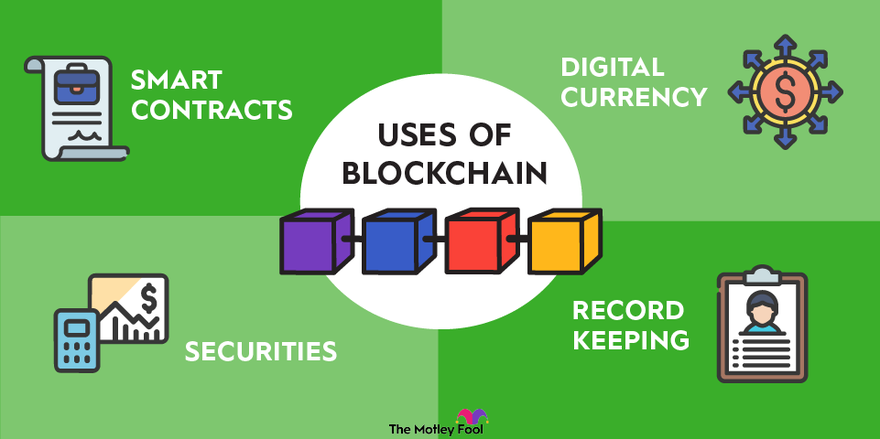The 23rd World Insights
Exploring the untold stories and events from around the globe.
Blockchain: The Internet's Secret Weapon
Uncover how blockchain is revolutionizing the internet and reshaping the future. Discover its secrets and unleash its potential!
Understanding Blockchain: How It Works and Why It Matters
Understanding Blockchain is essential in today's digital landscape, as it underpins a wide array of applications beyond its initial use in cryptocurrencies. At its core, blockchain technology is a decentralized and distributed ledger system that records transactions across multiple computers. This design ensures that once data is added to a block, it cannot be altered without the consensus of the network. The fundamental components of a blockchain include blocks, nodes, and mining. Blocks contain sets of transactions, which are verified by nodes within the network. Mining refers to the process of validating transactions and creating new blocks, a crucial step that secures the entire system.
Why does blockchain matter? It offers enhanced security, transparency, and efficiency compared to traditional centralized systems. Each transaction is cryptographically secured and linked to the previous one, creating an immutable chain, which drastically reduces the risk of fraud and unauthorized alterations. Moreover, by eliminating intermediaries, blockchain can significantly lower transaction costs and processing times. Industries ranging from finance and supply chain management to healthcare and voting systems are exploring the transformative potential of blockchain technology, making it a pivotal subject for anyone interested in the future of digital interactions and data management.

The Future of Transactions: Is Blockchain the Key to Decentralization?
The future of transactions is increasingly tied to blockchain technology, which promises to redefine the way we view and conduct exchanges in a decentralized manner. At its core, blockchain is a visionary approach that allows for secure, transparent, and tamper-proof transactions without the need for a central authority. This fundamental shift brings several notable benefits, including reduced transaction costs, increased efficiency, and enhanced security. As industries begin to explore the endless possibilities of blockchain, its potential to transform everything from finance to supply chain management becomes increasingly evident.
However, the adoption of blockchain is not without its challenges. Issues surrounding scalability, energy consumption, and regulatory frameworks must be addressed to unlock the full potential of decentralization afforded by this technology. Moreover, as we envision a future where transactions are executed on decentralized platforms, it is crucial to consider the implications for privacy and data protection. Overall, as we brace ourselves for the continued evolution of transaction methods, the question remains: can blockchain truly serve as the key to a more decentralized future?
Top 5 Industries Revolutionized by Blockchain Technology
The landscape of various sectors has drastically changed with the advent of blockchain technology. Notably, the financial services industry has been at the forefront of this transformation. By utilizing decentralized ledgers, financial institutions can offer enhanced security and transparency, reducing fraud and operational costs. Moreover, smart contracts streamline processes by automating and enforcing contract conditions without the need for intermediaries, paving the way for a more efficient ecosystem.
Another significant sector affected by blockchain is healthcare. The technology provides a secure method for storing and sharing patient data, ensuring privacy and compliance with regulations. With immutable records, blockchain enhances traceability in pharmaceutical supply chains, helping to combat counterfeit drugs. Additionally, blockchain can facilitate clinical trials by ensuring data integrity and safeguarding participants' rights, ultimately leading to improved patient outcomes.